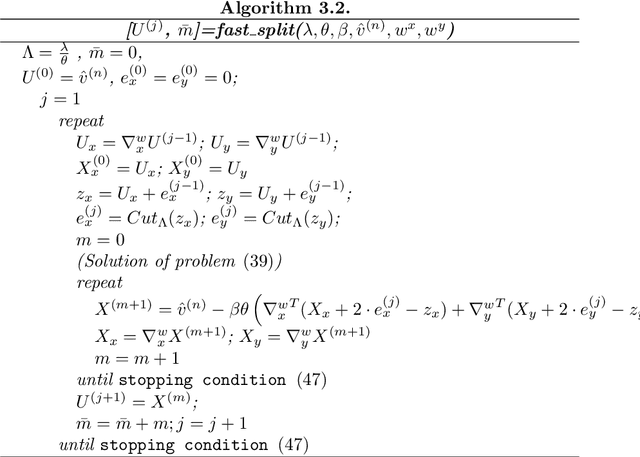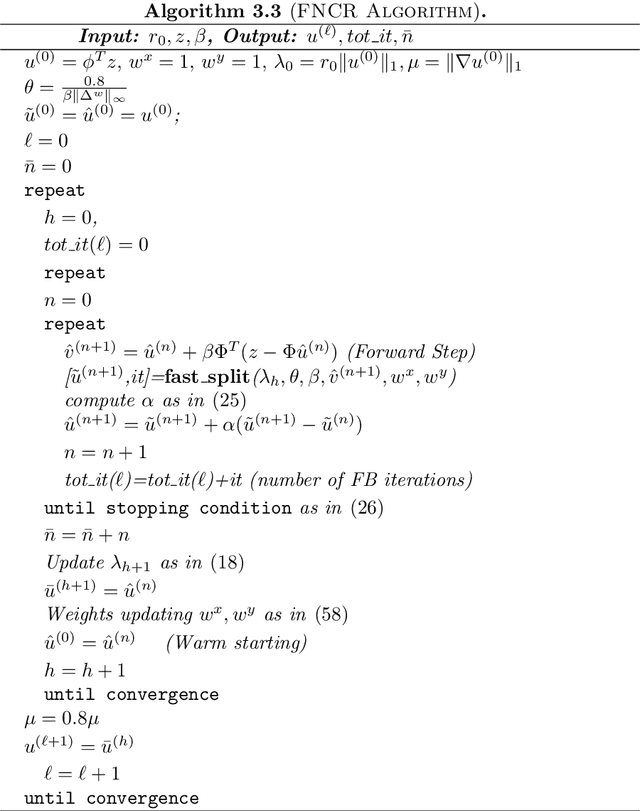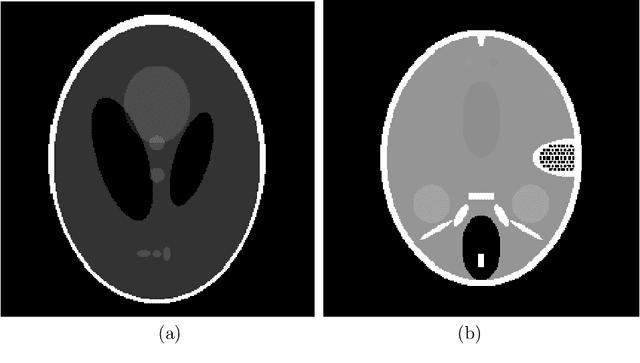Damiana Lazzaro
Deep Unfolding Network for Nonlinear Multi-Frequency Electrical Impedance Tomography
Jul 22, 2025Abstract:Multi-frequency Electrical Impedance Tomography (mfEIT) represents a promising biomedical imaging modality that enables the estimation of tissue conductivities across a range of frequencies. Addressing this challenge, we present a novel variational network, a model-based learning paradigm that strategically merges the advantages and interpretability of classical iterative reconstruction with the power of deep learning. This approach integrates graph neural networks (GNNs) within the iterative Proximal Regularized Gauss Newton (PRGN) framework. By unrolling the PRGN algorithm, where each iteration corresponds to a network layer, we leverage the physical insights of nonlinear model fitting alongside the GNN's capacity to capture inter-frequency correlations. Notably, the GNN architecture preserves the irregular triangular mesh structure used in the solution of the nonlinear forward model, enabling accurate reconstruction of overlapping tissue fraction concentrations.
Quantum median filter for Total Variation image denoising
Dec 02, 2022Abstract:In this new computing paradigm, named quantum computing, researchers from all over the world are taking their first steps in designing quantum circuits for image processing, through a difficult process of knowledge transfer. This effort is named Quantum Image Processing, an emerging research field pushed by powerful parallel computing capabilities of quantum computers. This work goes in this direction and proposes the challenging development of a powerful method of image denoising, such as the Total Variation (TV) model, in a quantum environment. The proposed Quantum TV is described and its sub-components are analysed. Despite the natural limitations of the current capabilities of quantum devices, the experimental results show a competitive denoising performance compared to the classical variational TV counterpart.
A fast nonconvex Compressed Sensing algorithm for highly low-sampled MR images reconstruction
Nov 29, 2017



Abstract:In this paper we present a fast and efficient method for the reconstruction of Magnetic Resonance Images (MRI) from severely under-sampled data. From the Compressed Sensing theory we have mathematically modeled the problem as a constrained minimization problem with a family of non-convex regularizing objective functions depending on a parameter and a least squares data fit constraint. We propose a fast and efficient algorithm, named Fast NonConvex Reweighting (FNCR) algorithm, based on an iterative scheme where the non-convex problem is approximated by its convex linearization and the penalization parameter is automatically updated. The convex problem is solved by a Forward-Backward procedure, where the Backward step is performed by a Split Bregman strategy. Moreover, we propose a new efficient iterative solver for the arising linear systems. We prove the convergence of the proposed FNCR method. The results on synthetic phantoms and real images show that the algorithm is very well performing and computationally efficient, even when compared to the best performing methods proposed in the literature.
 Add to Chrome
Add to Chrome Add to Firefox
Add to Firefox Add to Edge
Add to Edge